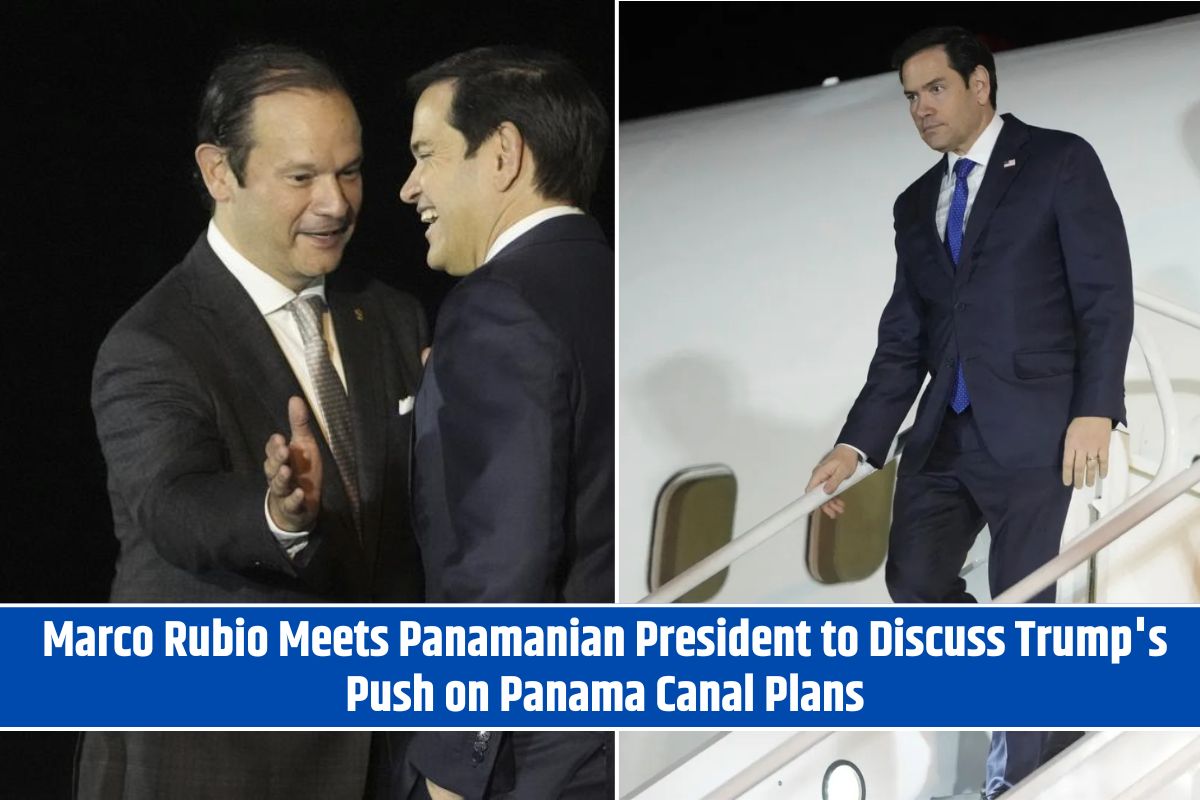Secretary of State Marco Rubio made his first overseas visit to Panama on Sunday, where he met with Panamanian President José Raúl Mulino. The trip highlights the Trump administration’s concern about China’s growing influence over the Panama Canal, a key global trade route, and signals a push for cooperation on immigration policies in the region.
The U.S. Push to Regain Control of the Panama Canal
The Panama Canal is a critical waterway connecting the Pacific and Atlantic Oceans, handling about 40% of global cargo ship traffic. The U.S. initially oversaw its construction and control but handed it over to Panama in 1999. Now, the Trump administration views China’s increasing involvement in the canal as a threat to U.S. economic and national security interests.
During his tour of the canal, Rubio emphasized the administration’s stance. According to Tammy Bruce, his spokesperson, the U.S. sees China’s influence as a violation of the Treaty Concerning the Permanent Neutrality and Operation of the Panama Canal. Rubio told Mulino that immediate changes were necessary to safeguard the canal’s operation.
Panama’s Role in the U.S. Immigration Policy
Rubio’s visit wasn’t just about the canal. The Trump administration is also seeking Panama’s cooperation on reducing illegal migration through the Darien Gap, a treacherous jungle route often used by migrants traveling north from South America. Rubio praised Panama for supporting a joint repatriation program aimed at curbing migration and human smuggling.
Panama’s cooperation is part of a broader push by the Trump administration to enlist Central American and Caribbean countries, including Costa Rica, El Salvador, Guatemala, and the Dominican Republic, to help address the U.S.’s illegal migration crisis.
Trade Tariffs and Regional Implications
While Rubio’s trip focused on diplomatic efforts in Panama, President Trump made headlines over the weekend by signing an executive order imposing 25% tariffs on imports from Canada and Mexico. The move is aimed at pressuring trade partners to address undocumented immigration and drug trafficking into the U.S.
Trump acknowledged on social media that the tariffs could cause “some pain” for consumers but insisted that the benefits would outweigh the costs.
However, not everyone agrees. Virginia Democratic Senator Mark Warner criticized the tariffs during a Sunday appearance on CBS’s Face the Nation, warning that they would lead to higher prices on essential goods, from food items like avocados and beer to larger purchases like cars and trucks.
“Donald Trump got hired saying he was going to lower grocery prices,” Warner said. “Two weeks in, he’s doing something that’s going to do the absolute opposite.”
Rubio’s Role as Secretary of State
Marco Rubio, the first Latino to serve as secretary of state, is taking a central role in advancing the Trump administration’s foreign and trade policies. His trip to Panama is the first stop in a broader tour of Central America and the Caribbean. By addressing key issues like immigration, regional cooperation, and China’s influence, Rubio is working to strengthen U.S. ties with neighboring countries.
His efforts highlight the administration’s strategy of combining economic and diplomatic pressure to achieve its goals, whether through tariffs, bilateral agreements, or regional partnerships.
Rubio’s visit to Panama underscores the Trump administration’s focus on curbing China’s influence over the Panama Canal while seeking regional cooperation on immigration policy. The trip comes amid heightened tensions over new tariffs on imports from Canada and Mexico, which have drawn criticism for their potential impact on U.S. consumers. As Rubio continues his diplomatic tour, the administration’s approach to balancing trade, security, and regional partnerships will remain in the spotlight.
